Former Property Week editor Giles Barrie recalls his meeting with the property entrepreneur and US presidential candidate, Donald Trump.
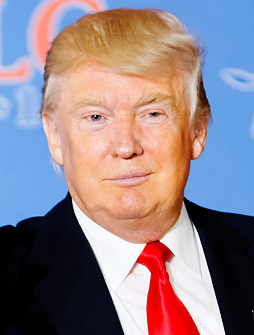
Whenever I tell people I’ve met Donald Trump they reply: “Is he actually mad?”
It’s an automatic response from people troubled by the prospect of Trump becoming President of the United States.
There is also an awkwardness among the property community over the fact that Trump is also the most famous developer in the world.
Many seek solace in their view that Trump surely cannot be a serious developer, but in fact they’d be wrong.
Because in the hour I spent with Trump in July 2003 I was left in no doubt that Trump is a developer to his fingertips. He loves buildings, he loves construction, and more than anything else he loves luxury.
In that sense Trump was years ahead of his time in defining in the US what Nick and Christian Candy later defined as “lifestyle for the über-rich”.
Here we re-present my profile piece on Trump, which on re-reading with hindsight shows a few worrying aspects of his character.
The Apprentice had yet to catapult Trump to superstardom, and he had yet to evince any of the outlandish behaviour which culminated in him body slamming World Wrestling Entertainment supremo Vince McMahon at Wrestlemania 23 in 2007 - check it out on You Tube, it’s amazing.
But more seriously Trump was wrong in his interview about prospects for the rebuilding of the World Trade Center, and wrong in his scathing analysis of architectural icon Frank Gehry. And he confessed a total inability to delegate in his dealings with the property and construction worlds.
Not a great trait for the potential future leader of the free world. If Trump generated fear within New York property circles in 2003, imagine the fallout if he becomes president later this year.
So, Donald Trump: a great showman, a brilliant property man, and to Property Week, one day 13 years ago, a nice guy. But also one of the oddest people I’ve ever met, and one who ever since that day has only got weirder…
NEW YORK GIANT

When comedy character Ali G lampooned a New York tycoon in April, he chose a developer. When fast-food giant McDonald’s wanted a star for its 2002 US advertising campaign, it chose the same developer. And the star of NBC’s new reality TV show? That man again, Donald Trump.
As famous for his lifestyle as for the Gucci interior design and success of his developments, Trump is in a different orbit to the rest of the transatlantic property industry. Love him or loathe him – and some do loathe him – Trump is by far the world’s best-known property man. As he says: “I’m as public as I could be.”
Trump – otherwise known as ‘The Donald’ – is the main operator in New York real estate, a world that is increasingly influencing British markets. New York is also the backdrop for the merger of Insignia Richard Ellis and CB Hillier Parker. And when the Big Apple’s office and retail markets recover, the UK’s will be six to nine months behind them.
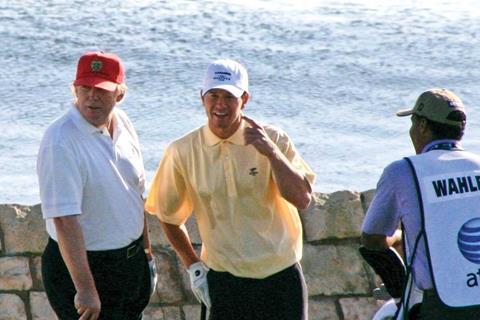
So where would you interview the man himself other than Manhattan? Property Week met him at Trump Tower on Fifth Avenue in late May. Despite a fearsome reputation in media circles – just ask former TV presenter Selina Scott (of which more later) – he is a relaxed and affable interviewee. And his commitment to getting things right becomes clear when he calls me at home in London a week later to help fill in any gaps.
Meeting Trump is an assault on the senses. The entrance to Trump Tower, his pride and joy, is a brass extravaganza, and his face stares out from the dozens of magazine covers that adorn his 26th-floor office. Images of Trump in Time, Fortune and Playboy stare down from one wall, while the man himself sits fingering a foot-long pair of golden scissors, his back to fabulous views of Central Park.
It’s no wonder Sacha Baron Cohen (aka Ali G) chose him in April as the ideal American tycoon to whom he would pitch his ‘business concept’ of a glove to eat ice cream. But Trump is no mug and the prank backfired.
“It was a total misrepresentation,” he explains of the skit. “They called me and said it was for the British Broadcasting Corporation; that it was a very serious piece. I walked into a room, and this guy was sitting there and I felt sorry for him. As soon as he asked a couple of questions I knew it was a spoof and I left.”
Not that Trump is camera-shy. In September, he starts filming The Apprentice, an NBC TV show in which 20 young candidates navigate a simulated corporate environment in Trump’s office before being eliminated one by one. The winner will land a $100,000-a-year job.
“It’s by the people who did Survivor,” he says. “They wanted me to do it. I agreed to do it. I’m happy about it. NBC thinks it’s going to be their biggest show of the year. It’s a very exciting concept. It’s about the jungles of New York.”
No one knows those jungles better than Trump himself. He owns 100% of the privately-held Trump Organisation, which has developed millions of square feet of office, hotel and apartment space across Manhattan. Its 2002 overall revenues, including extensive gaming operations in Atlantic City, were £6.2bn (up from £5bn in 2001). It employs 22,000 people, and Trump is chairman, president and chief executive.
Having worked for his father’s residential development business in the New York boroughs of Brooklyn and Queens, Trump made his name in the 1970s by piecing together complex sites and redeveloping them to lavish standards.
The most successful of his recent commercial projects have been the purchase and reletting of the 2m sq ft General Motors Building on Fifth and 59th Street and the rock-bottom acquisition and reletting of the 1.3m sq ft 40 Wall Street. He is working on the £3bn, 100-acre redevelopment of Manhattan’s West Side Rail Yards, which will include 5,700 homes and 5m sq ft of commercial space.
Urban warrior
Trump’s high profile in New York has made him passionate about city issues. Right now he is concerned about the smoking ban that has hammered business in bars and restaurants since its introduction by mayor Michael Bloomberg in March. “I’m not in favour of the smoking ban,” he says. “I don’t smoke, but it’s not a good thing. It’s making life too difficult for too many people. Smoking is a terrible thing, but it’s an addiction, and there are people who can’t live without it. If they can’t live without, it you’re making their lives miserable.”
Another issue that gets Trump going is the emotionally-charged redevelopment of the World Trade Center, for which Daniel Libeskind’s 10m sq ft plans are popular with New Yorkers, but Trump says they miss the point. “I don’t much like the architecture of what was picked, but the state, in their great genius, picked what they picked,” he says.
His views on Libeskind’s design are perhaps to be expected given Trump’s up-and-down relationships with architects. He says: “I have great respect – actually I can’t say ‘great’ because I have so much to do with the design – but I do pay great homage to well-known architects and talented architects.
“Philip Johnson is an architect I have used a lot; Norman Foster is a great architect; and then you have quirky architects who do things just for a splash, and I’m not a big fan of them generally. I think Frank Gehry is terrible as an architect.”
His biggest concern with Libeskind’s World Trade Center is not the design but its ability to succeed in a business sense. “Is it viable?” he asks. “It’s going to be a long-term project. It’s going to be a very, very long time out. First, you need a market, and you certainly don’t have a market for anything that big.
“If you have the really good locations, the office market is fine, but it’s certainly not a strong market right now. The hotel market is terrible, because people don’t want to fly in aeroplanes – and who can blame them?”
The best thing I do is build. I know how to build.
But he continues: “Skyscrapers in general are doing very well. The psychology is now back to – I can’t say totally normal, but back to a pretty good point. I built a very tall building on the East Side, and there was some resistance after September 11 but now there’s none whatsoever. People really want the high floors.”
Trump knows what he’s talking about, and is the ultimate hands-on developer. While he has trusted confidantes in his younger brother Robert, vice-president Norma Foerderer, long-term ally Louise Sunshine and Insignia’s Dick Levy and Steve Siegel, Trump himself makes the big decisions.
“I’m totally involved with everything,” he says. “The best thing I do is build. I know how to build. I learned that from my father by osmosis because I’d be a little guy watching him when he was building in Brooklyn and Queens.
“Whether it’s a building or a golf course or a boat, I build. And I build at a very high level – the highest level. I know how to build a project on budget, on schedule and for it to be the finest job.”
His hands-on approach has no better illustration than in his dealings with contractors. “I buy every contract,” he says. “I’ve developed over the years a sense of sub-contractors. They are the keys. I know the good ones and the bad ones, the ones who will charge too much and the ones who want extras.” Does he still phone them up himself and shout at them? “Oh yeah. I do it all the time. It’s part of my life.”
The ups and downs of Donald Trump
1946 Trump is born in 1946 to Brooklyn developer father Frank and mother Mary MacLeod, originally from the Hebrides
1960s Trump goes to New York Military Academy and Wharton School of Finance, while visiting sites with his father during his teens
1970s Moves to Manhattan in 1971 and in the mid-1970s negotiates the development of railway yards for the Jacob Javits Convention Centre
1970s Trump spends late 1970s and early 1980s piecing together site for and developing Trump Tower
1980s Onwards and upwards through the 1980s as he moves into Atlantic City with huge casino operation culminating in 2000’s opening of Taj Mahal
1987 Publishes The Art of the Deal, three million-selling guide on to how to make money in the US in the 1980s
1990 At the turn of the decade Trump hits trouble: wife Ivana files for divorce after he falls for former Miss Georgia Peach Marla Maples
1991 Trump is estimated to have net debts of $1bn as overexpansion and falling values take their toll. Forced to sell Trump Princessyacht
1992 Persuades banks to double or quit by backing him further, and emerges from the doldrums with The Art of the Comeback as values rise and the US enters its biggest-ever boom
1998 Buys the General Motors Building in May 1998 and leases it fully
1998 Buys and relets 40 Wall Street
2000 Expands out of New York and Atlantic City with projects in Chicago, California and Las Vegas
2002 New York-based Lockwood Publications launches Trump World, a magazine dedicated to everything that sums up the Trump brand
And he won’t skimp on materials. “I have to go top-of-the-line. If I weren’t involved it wouldn’t be the same product.” Trump explains that the homes next to his Trump National golf course 30 minutes from Manhattan are built from stone instead of cheaper wood.
“It’s totally unnecessary. I don’t believe I’ll get any more money from stone than I would if I used wood but I have to have that high quality for two reasons: first, the name Trump; second, it would hurt the golf course if I didn’t.”
Among British developers, only Stanhope chief executive Sir Stuart Lipton pays this level of attention to detail on very large projects. And only Gerald Ronson, in the days when he erected ‘Heron’ signs on top of office buildings, comes close to the brand.
One top British developer, who asked not to be named, says: “Trump is a salesman par excellence – that’s what Americans are wonderful at. They are very gullible and will rush for things if they are well marketed. That’s not to say he doesn’t produce very good buildings, but he’s got huge cheek, huge gall, he’s a huge gambler and a speculator. He’s brash, upfront and noisy, and there’s no stigma attached to that in the States.”
Name check
Trump is also interested in almost any type of deal. Highly-respected New York broker Siegel explains: “Donald is very smart and very quick. You don’t have to wait for any protracted discussions. He’s into opportunities: he didn’t buy his beauty pageants to be frivolous. People believe his name on a residential product. And there are people who just want to meet him in a negotiation.”
Imagine that: deals on a plate because you’re famous. While British developers such as John Ritblat, Elliott Bernerd and Ronson might welcome this, they would surely hate the limelight Trump enjoys.
Trump says: “A lot of times the word gets out that Donald Trump is trying to buy a certain site because the owner wants to get value. I have [the attention] in England; I have it in Iowa. It’s a compliment, I guess, but I don’t like the way they do it.”
He explains that the branding of Trump Tower happened by luck: “When I was building Trump Tower, I bought the air rights over [jewellery store] Tiffany, and one of the things I negotiated was the right to call the building Tiffany Tower.
“Then I went to a friend of mine who was very smart and I said: ‘Would you call the building Tiffany Tower or Trump Tower?’ He said: ‘Would you change your name to Tiffany?’ So I called it Trump Tower and it’s been a tremendous success.”
So far the Trump brand has yet to make it on to British soil. He has avoided involvement in the British property market, wary of building offices in a market he doesn’t know. “I have great relationships with a lot of terrific people there,” he says.
“Mohammed Al-Fayed is a friend of mine and is a great guy but a lot of people don’t know that.” A tie-up with Harrods then? “Well, I don’t know,” he answers. “I have to be very careful. I’ve turned down at least 10 jobs over the last five years in England because I don’t want to get into a situation where it’s not the best.”
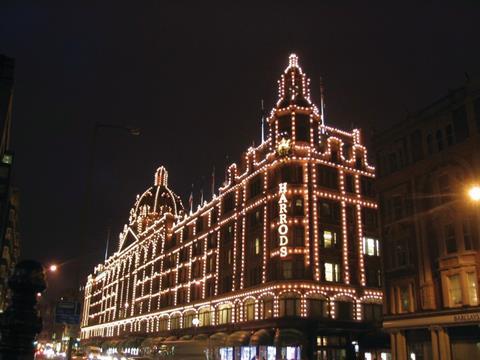
But the prospect of a Trump project in Britain is growing. Labour’s long-term promise to deregulate gaming would open up a market about which Britons know little but where Trump would be in his element.
Ronson is rumoured to have held talks about a joint venture with Trump’s great rival, Las Vegas Golden Nugget owner Steve Wynn. And Trump, without saying whether it is Westminster City Council, a landowner or an intermediary, says he has been invited to discuss the proposed redevelopment of the north side of Leicester Square in London’s West End.
He says: “We have been approached on Leicester Square and yes, I’m interested in helping. I love Britain. It’s a special place. Something could happen there but I’d only do it if I had the right partner. I’d want something big, and I’d want something very glamorous. I’d be very surprised if I didn’t do anything in England. Maybe some kind of combination – a hotel with a casino…”
Given that British Land, London & Regional and Paul Raymond’s Soho Estates are among the owners of the north side of Leicester Square, Trump may find it difficult to buy them out. But in a joint venture, or as a casino operator, who knows.
Although wary of involvement, Trump is intrigued about the state of the London office market, and asks after Canary Wharf. Told that altogether there is a 20% vacancy rate, he responds: “That’s because of the location,” he says. “It makes downtown Manhattan look real convenient. It was all gleaming and new to start with and now location has become an issue.”
Public life
Times have not always been so good for Trump. In the early 1990s he was reckoned to be more than £500m in the red as he expanded too quickly into casinos, and he had to write down a string of assets.
He had always had strong relationships with funders such as Manufacturers Hanover and Shearson Lehman (latterly Lehman Brothers) and Citicorp, but he had to call in his fair share of financial favours during the worldwide downturn.
The Trump Organisation is private, so it will always be difficult to assess its profitability. But having refinanced in the early 1990s and bought a string of sites cheaply, there is little doubt that Trump is now a billionaire.
“I learned that I handle pressure better than anyone else,” he says. “I mean, Rupert Murdoch came out great, but I came out better than anybody. I was big in the 1980s but now I’m five times bigger than I was in the 1980s. What I would say to anyone in trouble now is: hang in there and the market will come back. It may not be in our lifetime but that’s a minor detail.”
And his every up and down has been tracked by the media spotlight.
“I’d love to have it 50:50 or even 25:75, the 25 being the limelight,” he admits. “But you know it just doesn’t work that way in life. But it’s amazing; it’s been amazing. The good news is that I can get into any restaurant I want to very quickly.”
According to the polls I’m the most popular person in New York, so what can I tell you?
As you might expect with such a well-known figure, there is also a dark side to his character. Trump admits that he will fight hard for anything he thinks is right.
As a result, he earned himself a bad name in New York in the early 1980s by moving tenants out of apartment blocks and ripping ornaments out of historic buildings.
TV presenter Selina Scott has also fallen foul of New York’s property mogul. She ‘turned over’ Trump in a TV portrait, earning his condemnation and damaging her career in the process.
“Selina Scott is not a very talented person, I guess,” he says. “Now she’s gone, she’s off air. I was very nice to her and she was very nasty. But I got a lot nastier than she ever got in the end.”
This is a side of Trump that is far from appealing. Indeed, the mention of his name provokes a hint of nervousness among most New Yorkers. You get the sense that no one there would question his taste, but in such a judgmental and politically correct city is his taste in buildings and love of beautiful women not, well, kitsch?
“No,” he answers. “According to the polls I’m the most popular person in New York, so what can I tell you? The richest people in the world buy my product, and that’s only because they like it.”
And that sums up Trump. He is a 100%, unashamedly full-blown, copper-bottomed American star, who luxuriates in the United Jewish Appeal Federation’s honour ‘Hotel and Real Estate Visionary of the Century’.
As a symbol and barometer of US real estate, The Donald is the main man.
But never forget that underneath all the showmanship there is a very serious property man indeed.

























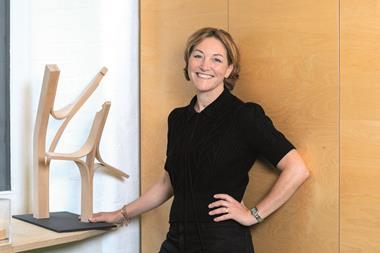
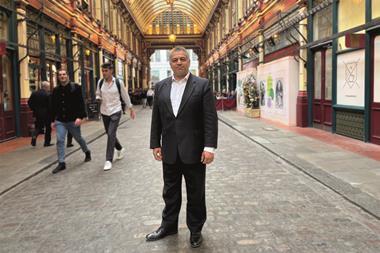
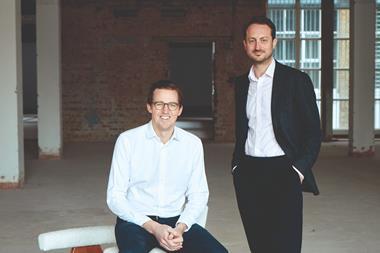
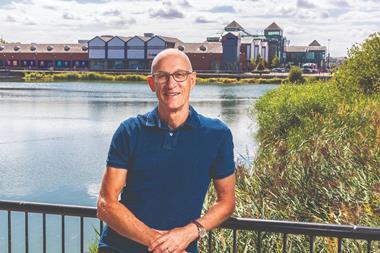
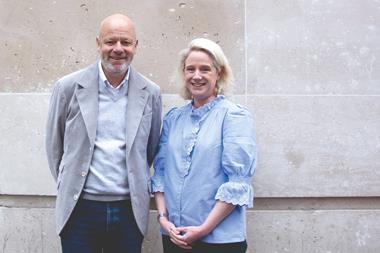
No comments yet